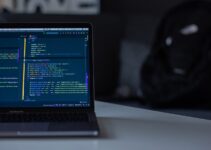Web scraping success depends on the efficiency and reliability of the scraper’s code. A performance-based web scraping tool integrates the components essential for crawling, fetching, searching, parsing, and reformatting data to make it analyzable and presentable. Developers must use the ideal programming languages and best practices to develop high-performance web scrapers. When writing a web scraper’s code, a programmer has to evaluate the maintainability, intuitiveness, and flexibility of the final product.
Page Contents
Best Web Scraping Programming Languages to Know
There is a vast list of programming languages for scripting web scrapers. Each language has features and libraries that distinguish it from others. When choosing a programming language, consider its web-scraping libraries, the support community, and the ease of coding. Pay attention to other critical parameters such as its efficiency, database management speed, scalability, and maintainability. Check out these top languages used by developers all over the world to write code for web scrapers.
1. Python
Python happens to be most web scrapers’ favorite programming language. It has robust, all-around frameworks and the broadest library category suitable for web scraping. The most extensive Python framework for web crawling is Beautiful Soup, which is not only efficient but also incredibly fast. Its web scraping-friendly features include Pythonic idioms for parse tree modifiability, navigation, and searching.
The Beautiful Soup framework works on most Python parsers, including html5lib and lxml, supporting various parsing methods. User-friendly frameworks and libraries do a lot to level the learning curve.

Source: freepik.com
2. Ruby
Ruby comes second among the best programming languages developers use for web scraping. The language is known for its easy-to-follow and straightforward syntax, which doesn’t scare beginners away. Many tout the language for its exceptional production deployment, web-scraping-ready techniques, and web page analysis.
Ruby’s Nokogiri framework deals with broken HTML and HTML fragments. Combined with its great extensions, including Sanitize and Loofah, Ruby has proven to be efficient for coding and developing web scrapers. It stands out because of its easy cloud deployment and development. Its Ruby Bundler system makes deploying and managing packages from GitHub easy.
3. JavaScript and Node.js
JavaScript and Node.js are among the world’s best programming languages for web crawling. They are excellent for crawling website pages on dynamic code. Web scraping with JavaScript and Node.js lets you easily export extracted data to CSV, JSON, text, and HTML files. When you pair JavaScript web scrapers with proxies, it allows for automatic IP rotation, preventing CAPTCHA issues and blocks.
This programming language has a fantastic selection of excellent website scraping libraries, including Puppeteer, Chromeless, PhantomJS, and Playwright. Each comes with its pros and cons, but as a rule, those with more functionalities will be more complex to use.

Source: freepik.com
4. C++
Setting up web scraping scripts using C++ is quite costly though the results are exceptional. Unless you’re an experienced developer, using C++ to create a web scraper is not advisable. The language is generally regarded as complex; therefore, a scraper on C++ could be expensive and time-consuming to deploy.
You can use Libcurl to extract URLs and write an HTML parsing library meeting all your unique needs. The good thing with C++ is that it allows for setting up scraping scripts for a specific purpose. However, it’s not a good programming language for handling web-related projects because it lacks standard tools and libraries.
5. PHP
PHP is a favorite programming language for developing a crawler for extracting graphics, photographs, and videos from websites utilizing the cURL library. cURL can transfer files using protocols FTP and HTTP. PHP features support the creation of web spiders for automatically downloading every type of data online. There are a variety of PHP libraries and tools essential for web crawling, including Guzzle, Simple HTML DOM, Goutte, Requests, and Buzz.

Source: freepik.com
Conclusion
A web scraper isn’t a one-size-fits-all solution because not all websites operate the same way. So figure out what your scraper will do before you start writing it.
No single programming language is perfect for all data crawling activities. Each language has a range of advantages and drawbacks, which is why you must first do your research before settling on one for your web scraping activity. It goes without saying, but if you’re not an experienced developer, it’s wise to get a professional to help you write your web scraping script.




